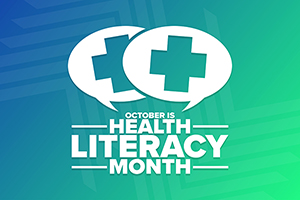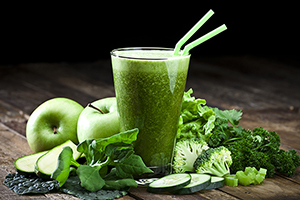| Podcast | |
|---|

|
A Six Point Program to Reverse Postpartum Depression, Part 2
November 17, 2015
Dr. Hoffman continues his conversation with Dr. Shoshana Bennett, Ph.D., a psychologist who specializes in postpartum depression and pregnancy-related problems. Click HERE for part 1.
|
 |
|

|
The Dorito Effect, Part 1
November 16, 2015
Dr. Hoffman returns tomorrow with all-new episodes of Intelligent Medicine. Today, please enjoy this encore of the most downloaded Intelligent Medicine interview ever. Mark Schatzker talks about his book, "The Dorito Effect: The Surprising Truth About Food and Flavor." Why do modern tomatoes suffer from “nutritional brownout?” Why do today’s jumbo-sized “cardboard chickens” require so much in the way of hyped-up flavorings, fried breading and sauces to be palatable? How have food scientists hijacked our taste buds to produce addictive, high-calorie, non-nutritious foods? What is “McRegret"? In our current “obesogenic" food environment, can we still say that obesity is just a moral failing or a matter of gluttony? Naturally-tasty, unadulterated ingredients are the answer, but won’t all those artisanal, grass-fed, or heirloom foods be cost-prohibitive? Will we still be able to feed the planet with fresh, locally-grown, small-scale agricultural products? Mark Schatzker reveals how a food Renaissance is talking place, wherein consumers are demanding more flavorful, nutritious, unadulterated food; And, food producers are responding, with more tasty, natural alternatives to industrially-processed, factory-farmed foods; What can the average consumer do to “live long and eat flavorfully’? Can this approach help failed dieters recover their appetite equilibrium? Click HERE for part 2.
|
 |
|

|
The Dorito Effect, Part 2
Dr. Hoffman continues his coversation with mark Schatzker, author of 'The Dorito Effect: The Surprising Truth About Food and Flavor." Can this approach help failed dieters recover their appetite equilibrium? Click HERE for part 1.
|
 |
|

|
Leyla Weighs In
November 13, 2015
What's the best omega-6 supplement to take: borage oil or evening primrose oil; new recommendations from the Dietary Guidelines Advisory Committee for upcoming Dietary Guidelines for Americans; general nutrition advice should come with a health warning!
|
 |
|

|
Q&A with Leyla, Special Encore
November 12, 2015
Dr. Hoffman is traveling today, so please enjoy this special encore episode of Intelligent Medicine. It's the very first ever Q&A with Leyla from June 23, 2013.
|
 |
|

|
Clinical Focus: IV Vitamin Therapy, Part 1
November 11, 2015
Dr. Hoffman celebrates his 30th anniversary of administering intravenous therapies at the Hoffman Center. Despite the controversies over this "alternative" therapy, IVs have been delivering remarkable results to patients for decades, and now emerging science is finally vindicating them. Why give vitamins and minerals intravenously when you can give them by mouth? Who's a candidate for IV vitamin therapy? What's the Myers Cocktail? What role does intravenous magnesium play in a variety of disorders ranging from fibromyalgia, to chronic fatigue, to cardiovascular problems? What's the latest science on high-dose vitamin C for cancer? How does IV vitamin C combat common infections? How might IV glutathione aid detoxification, improve brain function, and alleviate fatigue? Click HERE for part 2.
|
 |
|

|
Clinical Focus: IV Vitamin Therapy, Part 2
Dr. Hoffman continues his talk about the benefits of IV vitamin therapies as he marks the 30th anniversary of administering intravenous therapies at the Hoffman Center. Click HERE for part 1.
|
 |
|

|
Q&A with Leyla, Part 1
November 10, 2015
The microbiome exhibit at Museum of Natural History in NYC. The lowdown on strontium safety: the difference between supplemental strontium and prescription strontium ranelate. What’s causing my stomach pains after eating? Click HERE for part 2.
|
 |
|

|
Q&A with Leyla, Part 2
What to do about drowsiness after a meal, take a nap, or a walk? Does vitamin K interfere with a daily aspirin regimen? Is my high B12 inhibiting my weight gain? Does exercise cause falsely high PSA levels? What supplements can protect me against my mandatory workplace flu vaccine? Turmeric or curcumin: which is more effective? Click HERE for part 1.
|
 |
|

|
Intelligent Medicine Radio Show for November 7, Part 1
November 9, 2015
Improvements in the American diet have saved over a million lives since 1999; Diet trends suggest (at least some) Americans are getting the message: Soda sales down 25%, O.J. consumption down 45%, sugary cereals down 25%, frozen dinners down 12%, and vegetable consumption up 10%; Oligonol, a new bio-available polyphenol derived from lychee, promotes circulation, combats Raynaud’s Syndrome; MK-7 vitamin K helps bones, prevents loss of height due to spinal compression, and reverses arterial stiffness; Xylitol alert: beneficial for humans, but keep it away from pets! Click HERE for part 2. Click HERE for articles and resources relating to this podcast episode.
|
 |
|
|





























